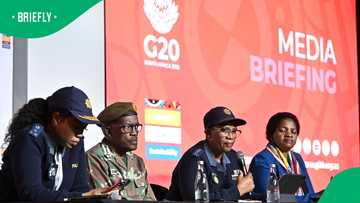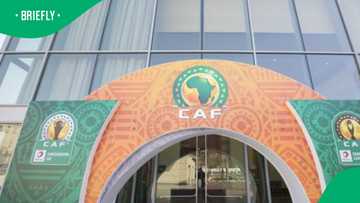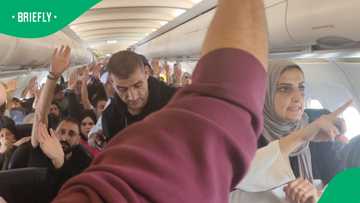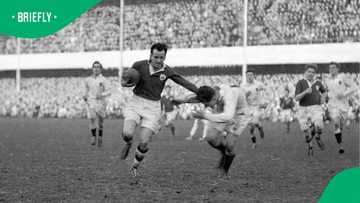Day of Reconciliation: The history of the holiday, facts and quotes
The Day of Reconciliation is an annual public holiday in South Africa celebrated on 16 December. It marks the momentous reunion of the country's black and white people, an integral part of its history. This article provides further information about the historic holiday and its origin.
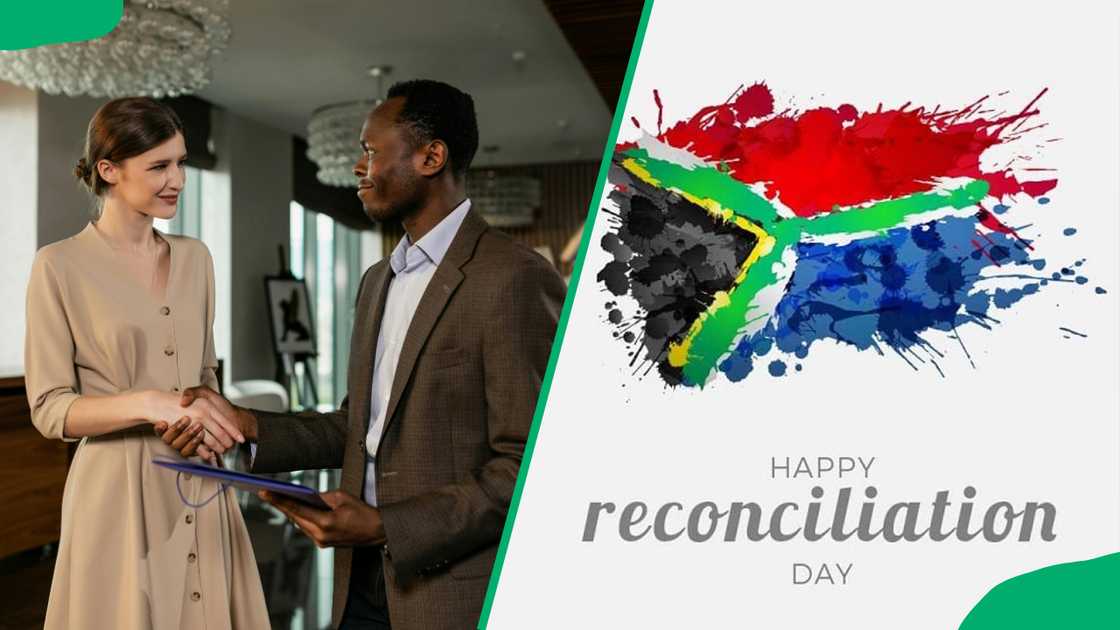
Source: UGC
TABLE OF CONTENTS
- Key takeaways
- The Day of Reconciliation's meaning and history
- What is the meaning of the Day of Reconciliation?
- What happened on the Day of Reconciliation?
- Why is the Ncome River called Blood River?
- How many died at Blood River?
- How is the Day of Reconciliation celebrated?
Key takeaways
- South Africans celebrate the Day of Reconciliation annually to remember the dark days of apartheid
- It also marks the reunion of black and white South Africans after the apartheid rule ended.
- The country first celebrated the day on December 16, 1995.
- In the past, the celebration revolved around the victory by the Voortrekkers over the Zulus on 16 December 1838.
The Day of Reconciliation's meaning and history
The Day of Reconciliation is important in South Africa for two reasons. First, it commemorates the Battle of Blood River, which took place on 16 December 1838 between the Zulus and the Voortrekkers.
Second, it marks 16 December 1961, when the ANC established its military wing—Umkhonto we Sizwe (MK).
History of the Day of Reconciliation
It was not until 1995 that SA first celebrated the Day of Reconciliation. In the past, the celebration revolved around the victory by the Voortrekkers (southern Africans of Dutch, German, or Huguenot descent who made the Great Trek) over the Zulus on 16 December 1838. In fact, for a long time, it was called the “Day of Vow” or “Dingane’s Day.”
Why was the Day of the Vow celebrated?
The Day of the Vow was initially celebrated in apartheid South Africa on December 16 to commemorate the Voortrekkers' vow to build a church and observe a day of thanksgiving after the Battle of Blood River in 1838.
However, black South Africans hesitated to join in the celebration, considering that the gunpowder of an army of around 464 Voortrekkers had decimated over 30,000 Zulus in 1838.
Why do we celebrate the Day of Reconciliation in South Africa?
More than 100 years after the Battle of Blood River in 1838, black South Africans set aside 16 December to celebrate something close to their hearts.
On 16 December 1961, the African National Congress (ANC), SA's dominant party, formed a military wing called Umkhonto we Sizwe, thereby taking the struggle for freedom from apartheid to a new dimension.
Eventually, Umkhonto we Sizwe led to Nelson Mandela's release from prison and the end of apartheid in 1995, which signaled the birth of the Day of Reconciliation.
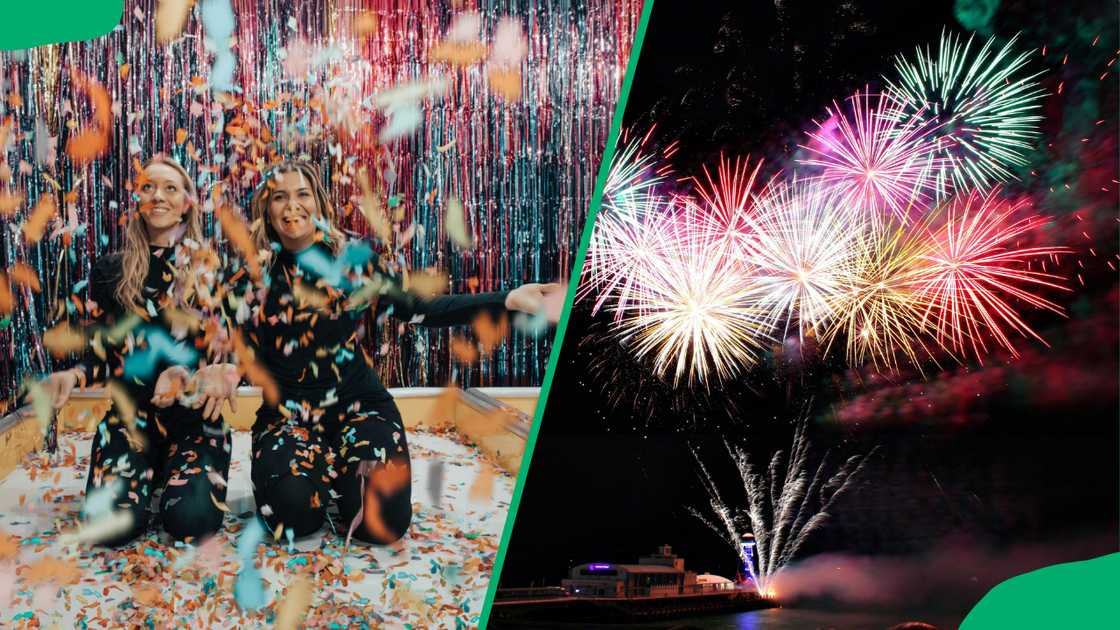
Source: UGC
Changes that were made to the Day of Reconciliation
On 16 December 1838, Dingane was the king of the Zulu when the 470 Voortrekkers decimated the Zulu army using guns and ammunition 1838. The winners vowed to build a church and observe "Dingane's Day" as a religious holiday.
In 1894, Dingane's Day was declared a public holiday by the Government of the Orange Free State. In the years that followed, that day's original intention disappeared.
Dingane's Day remained intact until 1952, when the National Party renamed it the Day of the Covenant. In 1980, SA's government adopted a new name, the Day of the Vow.
Before the 1980 changes, South Africans celebrated it in many fun ways, including concerts, sports events, and theatre performances. After 1980, most events became illegal, permitting only religious activities.
In 1995, a few months after Nelson Mandela was elected president, he changed the Day of the Vow to the Day of Reconciliation. While Afrikaners celebrated their victory over the Zulus in 1838, black South Africans marked it as the founding of Umkhonto we Sizwe.
Apartheid had damaged the country and left a psychological effect on South Africans. The whites, who were in the minority, had inhumanely exercised authority over the blacks.
Racial segregation affected the whole country socially, morally, and politically. To date, the results still reverberate across the country, which is yet to heal completely from decades of apartheid.
Importance of the Day of Reconciliation in South Africa
For years, South Africa had been a hotbed of intense animosity pitting the two primary races – blacks and whites – against each other. South Africans hope to find healing, forgiveness, and reconciliation from a dark past through the annual Day of Reconciliation celebrations.
All the fun, celebratory activities banned in 1980 were restored. Since then, South Africa has celebrated it religiously through cultural parades and festivities.
The holiday has become a powerful tool for:
- Healing the wounds left behind by apartheid
- Celebrating minority cultural groups around the country
- Promoting non-sexism
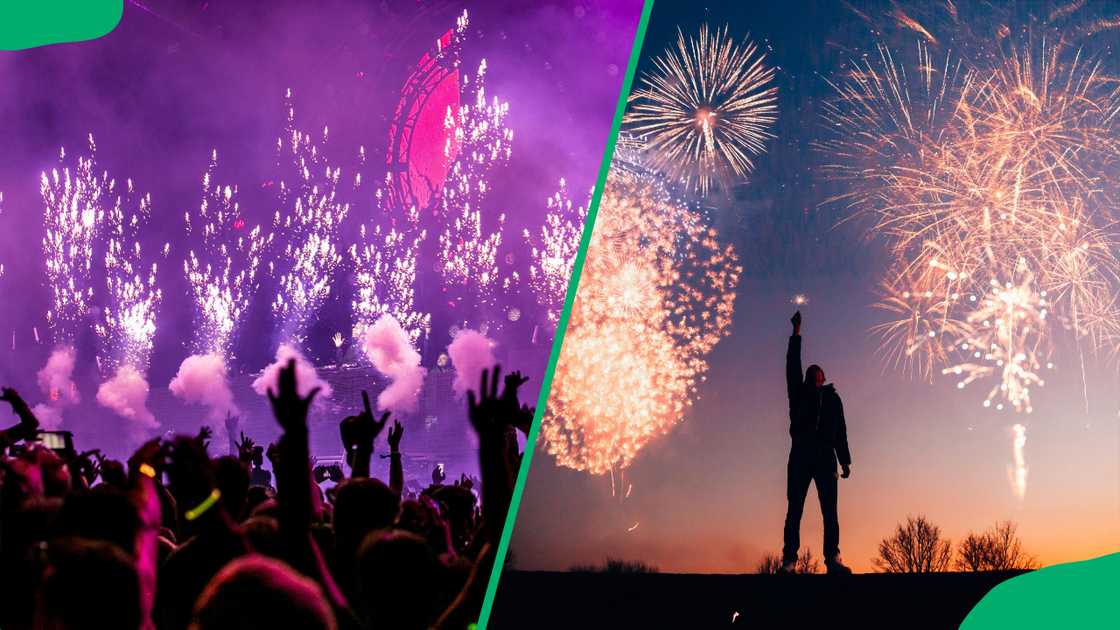
Source: UGC
Facts about the Day of Reconciliation
Here are three facts about the Day of Reconciliation:
- The term for Day of Reconciliation in Afrikaans is “Dag van Versoening.”
- It was first celebrated as it is now in 1995, which was one year after South Africa's first democratic elections.
- It seeks to reconcile the country from its dark, divided past and embraces the need to enhance national unity and reconciliation within a new political order.
The Day of Reconciliation quotes
Many have asked, 'What happened on 16 December 1995 in South Africa?' On that pivotal date, Nelson Mandela took to the podium and made a speech that completely reshaped how South Africans, black and white alike, commemorated the Day of Reconciliation. Here are five quotes from President Nelson Mandela's speech on National Reconciliation Day:
- We, the people of South Africa, have made a decisive and irreversible break with the past. We have, in real life, declared our shared allegiance to justice, non-racialism, and democracy, our yearning for a peaceful and harmonious nation of equals. - Nelson Mandela
- We do know that healing the wounds of the past and freeing ourselves of its burden will be a long and demanding task. This Day of Reconciliation celebrates the progress we have made; it reaffirms our commitment, and it measures the challenges. - Nelson Mandela
- Today, we no longer vow our mutual destruction but solemnly acknowledge our interdependence as free and equal citizens of our common Motherland. - Nelson Mandela
- Today, we reaffirm our solemn constitutional compact to live together on the basis of equality and mutual respect. - Nelson Mandela
- Reconciliation, however, does not mean forgetting or trying to bury the pain of conflict... Reconciliation means working together to correct the legacy of past injustice. It means making a success of our plans for reconstruction and development. - Nelson Mandela
The Day of Reconciliation theme in South Africa 2025
The South African government has chosen a different theme for this public holiday each year. The 2024 Reconciliation Month was commemorated under the theme, “Healing Historical Wounds and Forging New Futures.”
The 2025 Day of Reconciliation theme has not yet been officially announced by the South African government, but it will likely focus on reconciliation as part of building a more just and equitable society.
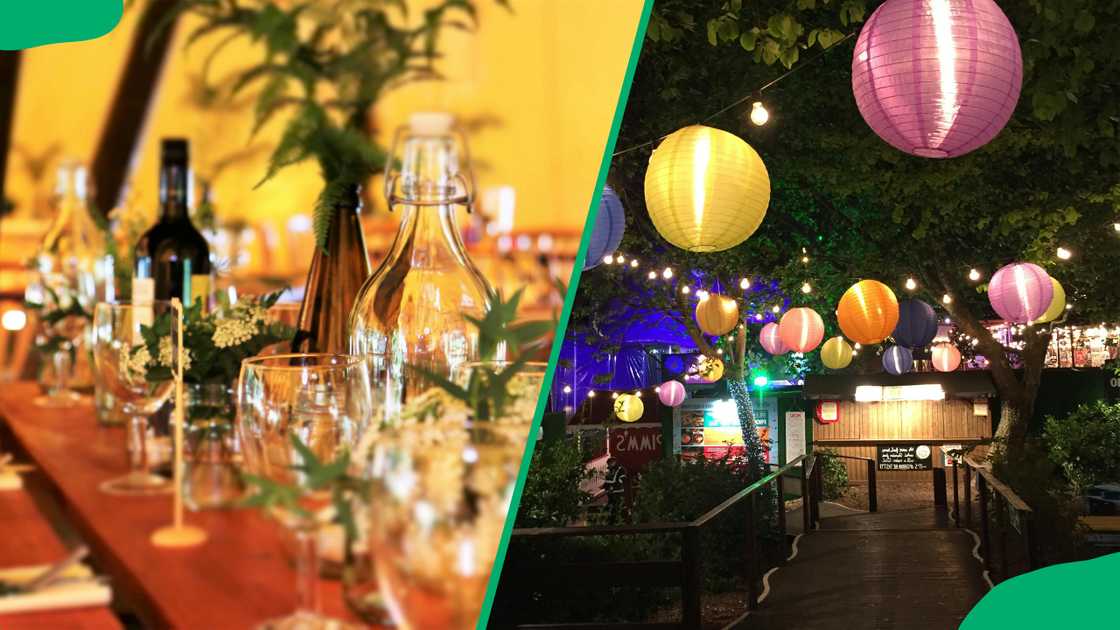
Source: UGC
Debates concerning the Day of Reconciliation
The purpose of this day is still being determined, as many South Africans consider it useless. The section below explains the debates concerning the Day of Reconciliation:
- Blacks are still not considered on equal footing with whites. For instance, most blacks don't own land and are not empowered enough, making the whole celebration seem redundant.
- There is a firm unwillingness from the whites to blend into society. The expectation is that black South Africans should integrate with white South Africans.
- White South Africans do not want to bridge the abysses and heal the wounds. There is deep denial about the evils of the past, a refusal to accept that apartheid benefited all whites, and a resistance to mechanisms of redress.
- Black South Africans believed they were freed from apartheid, but discovered decades later that it was whites who were liberated from the burden of being called the oppressors and were free to enjoy their earned privilege with a clean conscience.
What is the meaning of the Day of Reconciliation?
On 16 December of every year, South Africa celebrates the Day of Reconciliation to remember the dark days of apartheid and the reunion of black and white South Africans after the apartheid rule ended.
What happened on the Day of Reconciliation?
Due to the debates surrounding the Day of Reconciliation, many young South Africans have wondered, What happened on 16th December in South Africa? For one, the Voortrekkers won the Battle of Blood River against the Zulus on 16 December 1838.
Secondly, the ANC party formed its military wing – Umkhonto we Sizwe (MK) – on 16 December 1961, which spearheaded the end of apartheid and South Africa's independence from colonialism.
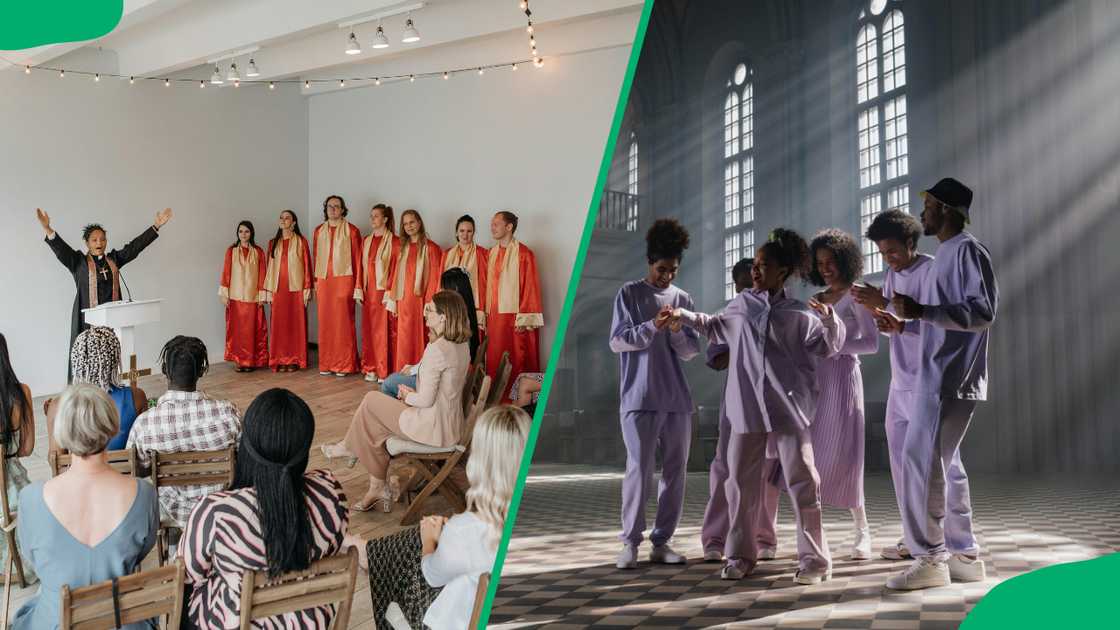
Source: UGC
Why is the Ncome River called Blood River?
The water in the Ncome River, in which Andries Pretorius and his men defeated Zulu King Dingane on 16 December 1838, is said to have turned red from the blood of Zulu men who were killed in the massacre.
How many died at Blood River?
The Battle of Blood River was a fight between 464 Boers and over 30,000 Zulu men. More than 3,000 Zulu died during the battle, but only a few Voortrekkers were wounded.
How is the Day of Reconciliation celebrated?
People go to places of worship and participate in numerous religious activities. You can also attend concerts, sports events, theatre performances, and other fun activities.
The Day of Reconciliation means a lot to South Africans, even though the country has yet to recover from the effects of racial segregation fully. Nonetheless, their determination to forge ahead is admirable.
Briefly.co.za explained how to prepare for Christmas in South Africa, from lunch ideas to décor. South Africans celebrate Christmas with public holidays on 25 and 26 December.
They commemorate the birth of Jesus Christ on 25 December. The next day is known as the Day of Goodwill or Boxing Day. The name "Boxing Day" comes from Queen Victoria's reign, when the rich used to box up gifts to give to the poor.
Source: Briefly News

Peris Walubengo (Lifestyle writer) Peris Walubengo has vast experience in search engine optimization through digital content generation, research, editing, and proofreading. She joined Briefly.co.za in November 2019 and completed the AFP course on Digital Investigation Techniques. You can email her at perisrodah254@gmail.com.

Justin Williams (Editorial Assistant) Justin Williams joined Briefly News in 2024. He is currently the Opinion Editor and a Current Affairs Writer. He completed his Bachelor of Arts (BA) degree in Film & Multimedia Production and English Literary Studies from the University of Cape Town in 2024. Justin is a former writer and chief editor at Right for Education Africa: South African chapter. Contact Justin at justin.williams@briefly.co.za

